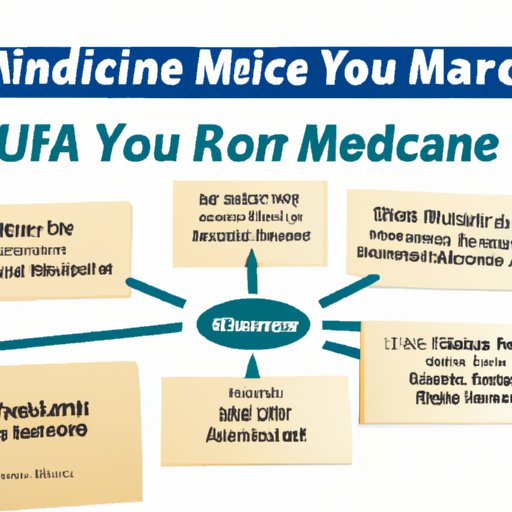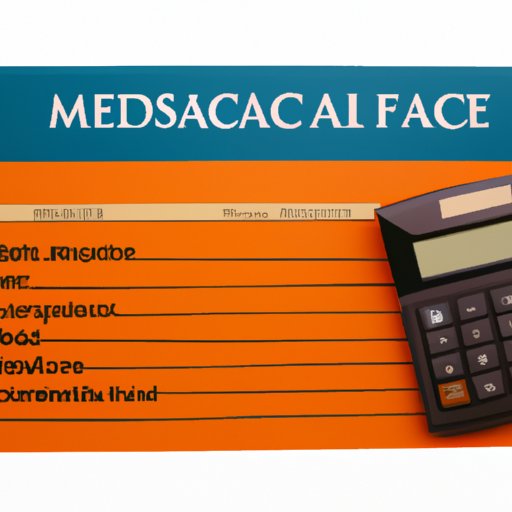Exploring the Role of Income in Medicare Eligibility
Medicare is the federal health insurance program that provides coverage for individuals aged 65 and over, as well as those with certain disabilities or end-stage renal disease. It is one of the most comprehensive health care programs in the United States, offering coverage for hospital stays, doctor’s visits, prescription drugs, and more. But who is eligible for Medicare, and how does income factor into the equation?
Overview of Medicare and its eligibility requirements
In general, Medicare is available to anyone age 65 or older who is a U.S. citizen or permanent resident, as well as certain people under 65 who are disabled and have been receiving Social Security Disability Insurance (SSDI) benefits for at least 24 months. Additionally, some people with end-stage renal disease may qualify for Medicare regardless of age.

How income is used to determine eligibility
Income is not a factor in determining whether or not someone is eligible for Medicare. However, it can affect what type of coverage an individual can get and how much they will be required to pay for their coverage. For example, some people may qualify for low-income Medicare plans, which offer reduced premiums and other cost savings.
Impact of income on Medicare coverage
Your income level can have a big impact on your Medicare coverage, including the types of plans you qualify for, the amount of premiums you pay, and other cost sharing expenses. Let’s take a closer look at how your income affects your Medicare coverage.

Understanding How Your Income Affects Your Medicare Coverage
Impact of income on Part A and Part B premiums
Part A and Part B are two of the main components of Medicare. Part A covers hospital stays, while Part B covers doctor’s visits and other medical services. Premiums for Part A and Part B vary depending on an individual’s income level. Generally, people with higher incomes will pay higher premiums for both Part A and Part B.
Additional costs based on income level
In addition to the monthly premiums for Part A and Part B, there may be additional costs associated with Medicare coverage, such as deductibles, copays, coinsurance, and other out-of-pocket expenses. These costs also vary depending on an individual’s income level. Generally, people with lower incomes may be eligible for cost-sharing reductions, which can help reduce the amount they have to pay for these expenses.
Understanding how your income affects your Medicare coverage
It’s important to understand how your income level affects your Medicare coverage. Knowing this information can help you make informed decisions about the type of plan that’s right for you and your budget.
A Guide to Medicare Based on Income Level
Eligibility thresholds for low-income Medicare plans
If you have a limited income, you may be eligible for a low-income Medicare plan. In order to qualify for a low-income plan, you must meet certain income and asset thresholds. Generally, these thresholds are set by the federal government each year, and they vary by state. To find out if you qualify for a low-income Medicare plan, contact your local Social Security office or visit the Centers for Medicare & Medicaid Services website.
Types of low-income Medicare plans available
Once you’ve determined that you qualify for a low-income Medicare plan, you can start looking at the different plans that are available. The most common type of low-income Medicare plan is the Medicare Savings Program (MSP). This program helps cover the cost of Part A and Part B premiums, as well as other out-of-pocket expenses. There are also other specialized low-income plans, such as the Qualified Medicare Beneficiary (QMB), Specified Low-Income Medicare Beneficiary (SLMB), and Qualifying Individual (QI) programs. Each of these programs has its own eligibility requirements, so it’s important to review them carefully before enrolling.
Overview of cost sharing and premiums based on income level
The amount of cost sharing and premiums you’ll pay for your low-income Medicare plan will depend on your income level. Generally, the lower your income, the lower your premiums and cost sharing will be. You can find out more about the cost sharing and premiums for low-income Medicare plans by visiting the Centers for Medicare & Medicaid Services website.
Benefits of Low-Income Medicare Enrollment
Savings on premiums, deductibles, and copays
Enrolling in a low-income Medicare plan can help you save money on your health care costs. By reducing your premiums, deductibles, and copays, you can potentially save hundreds or even thousands of dollars on your health care costs each year.
Access to extra services and programs
Low-income Medicare plans often come with access to extra services and programs that aren’t available through traditional Medicare plans. These include transportation services, home health services, and long-term care services. Additionally, some low-income plans offer discounts on prescription drugs and vision care.
Improved access to medical care
Finally, enrolling in a low-income Medicare plan can help improve your access to medical care. By reducing the cost of your health care expenses, you may be able to get the care you need without breaking the bank.

Comparing Medicare Plans Based on Income
Overview of different plan types
When comparing Medicare plans based on income, it’s important to understand the different types of plans that are available. Traditional Medicare plans are fee-for-service plans that cover Part A and Part B. Medicare Advantage plans are managed care plans that combine Part A and Part B coverage, as well as other services like prescription drugs. Lastly, low-income Medicare plans are designed for people with limited incomes and provide reduced premiums and other cost savings.
Factors to consider when comparing plans
When comparing Medicare plans, it’s important to consider the following factors: premiums, deductibles, copays, coverage for prescriptions, and out-of-pocket maximums. Additionally, it’s important to research the provider networks of each plan to make sure that the doctors and hospitals you need are covered. Finally, it’s important to read the fine print of each plan to make sure that it meets your needs.
Tips for finding the right plan for you
Finding the right Medicare plan for you can be a daunting task. To make the process easier, it’s important to use the resources available to you, such as the Medicare Plan Finder tool, to compare plans and find the one that best fits your needs. Additionally, it’s always a good idea to speak with a licensed insurance agent or broker who can help you better understand your options.

Financial Assistance for Medicare Based on Income Level
Programs available to help pay for Medicare
If you’re struggling to pay for your Medicare costs, there are several programs available to help. The most common program is the Medicare Savings Program (MSP), which helps pay for Part A and Part B premiums, as well as other out-of-pocket expenses. Additionally, the Extra Help program helps low-income seniors pay for their prescription drug costs. Lastly, there are also programs that provide financial assistance for other health care costs, such as long-term care and dental care.
How to apply for financial assistance
In order to apply for financial assistance, you must complete a financial assistance application. You can obtain an application from your local Social Security office or online at the Centers for Medicare & Medicaid Services website. Once you’ve completed the application, you’ll need to submit it along with any required documentation.
Other resources available to help with Medicare costs
In addition to financial assistance programs, there are other resources available to help with Medicare costs. These include state and local assistance programs, charitable organizations, and private insurance plans. It’s important to do your research and find the resources that are right for you.
Conclusion
In conclusion, income is a key factor in determining your Medicare eligibility and coverage. If you have a limited income, you may qualify for a low-income Medicare plan, which can provide significant savings on premiums, deductibles, and copays. Additionally, there are several programs available to help pay for Medicare costs. By understanding how your income affects your Medicare coverage, you can make informed decisions about the plan that’s right for you.
(Note: Is this article not meeting your expectations? Do you have knowledge or insights to share? Unlock new opportunities and expand your reach by joining our authors team. Click Registration to join us and share your expertise with our readers.)
